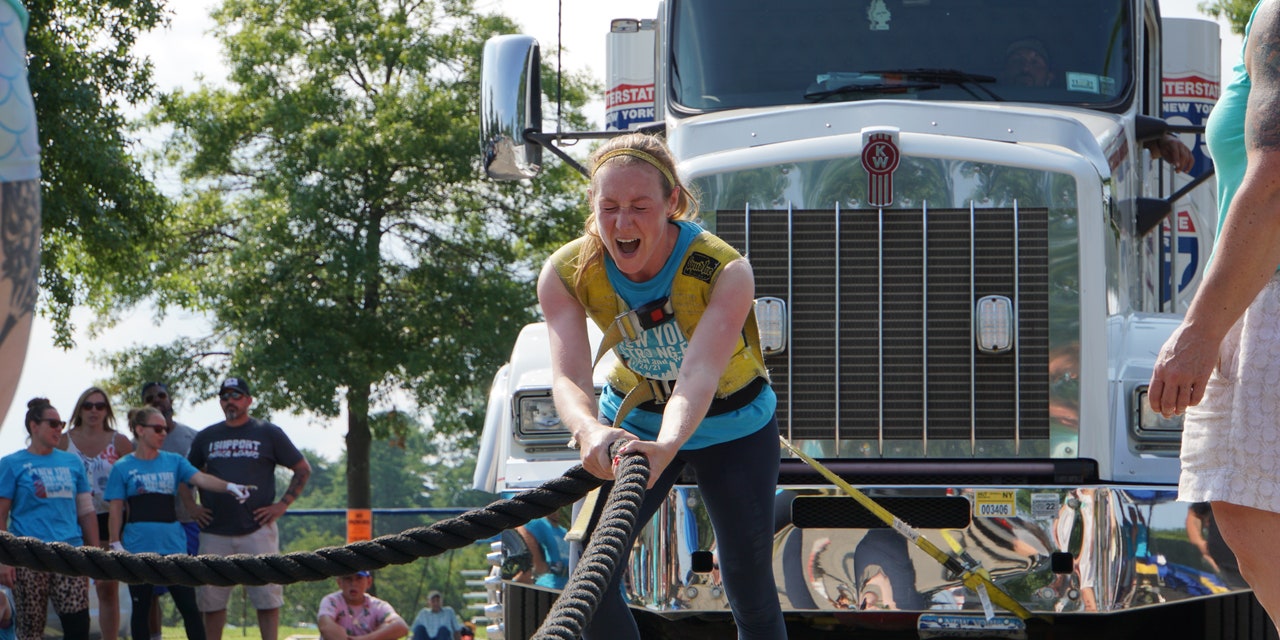I was the strongest I had ever been when life ground to a halt.
It was November 2016. I was standing on the turf strip that runs down the center of my 24-hour, old-school-style strength-training gym, bear-hugging a 100-pound boulder. As I rose to stand, clutching the giant orb to my chest, I realized I was exhausted. Like, I-could-nap-right-here-on-this-fake-grass exhausted. I wondered if maybe I hadn’t eaten enough before my session or slept poorly the night before. But the next morning, as I dry-heaved in the bathroom, I knew something was really off.
I took a pregnancy test and was shocked and thrilled to see two solid lines appear in the display window. My husband and I had been trying for only one cycle, and neither of us expected a positive result to happen so soon. While we were both excited, we tempered our expectations. We knew too many friends who had experienced pregnancy loss to assume this was a sure thing.
Three weeks later, an ultrasound revealed that at 6.5 weeks gestation, there was no heartbeat. A second ultrasound a week later confirmed I was miscarrying.
READ RELATED: TikTok’s 2-Ingredient Feta Eggs Breakfast Is My New Favorite Way to Get Protein in Early
Over the next week, I bled as my body passed what it no longer needed. Some days there was light spotting. On others, I could feel the clumps of tissue forcing their way out. It seemed cruel that this process was so slow, so drawn-out, when all I wanted to do was move forward.
I had spent the past three years lifting weights consistently in CrossFit and strongman (the latter of which you might recognize from late-night reruns on ESPN—it largely consists of picking up heavy, odd objects like rocks and logs and then carrying, throwing, or pressing them overhead). Now, I was surprised at how easily my strength could be defeated. The armor I had built seemed to crumble, leaving me vulnerable and broken. I felt disconnected from my body, angry that it had failed to do the thing it was biologically programmed to do. The family timeline I had envisioned for myself slipped further and further away. The muscles that once tightened and braced to move heavy things went slack.
A few weeks later, I was medically cleared to exercise again, and at first, I turned to running to process my anger and anguish. As I put one foot in front of the other, I cried big, ugly tears. The catharsis felt good in the moment, but when the runner’s high wore off, I was back in the same place as I was before I’d left the house. Sometimes I’d catch myself staring blankly at the wall. Other times the pit of grief in my stomach made it hard to stand upright. I knew the statistics—that about 10 to 20 percent of known pregnancies end in miscarriage and nearly 20 percent of women who experience a miscarriage become symptomatic for depression and anxiety—but being part of that club didn’t make me feel less alone.
The only thing that seemed to have any noticeable impact on my sadness was returning to the gym. I craved the confidence I had before my miscarriage—that inner and outer strength—so my coach built entire workouts around making me feel empowered. I channeled all my anger, exhaustion, and hurt into moving the barbell. As I let out beastly grunts of exertion, I exhaled all my pain, forcing it out of my body. Every time my muscles burned, I white-knuckled the bar and pushed through, reminding myself that I can overcome discomfort. And for a glorious few hours after I left the gym, I bounded through life with my shoulders pulled back, my arms slightly bent to show off my growing biceps, and my chest pressed forward. I couldn’t explain it, but strength training was bringing me back to life. I could face the rest of the day with the sense of accomplishment that comes from trying something difficult and overcoming it.






